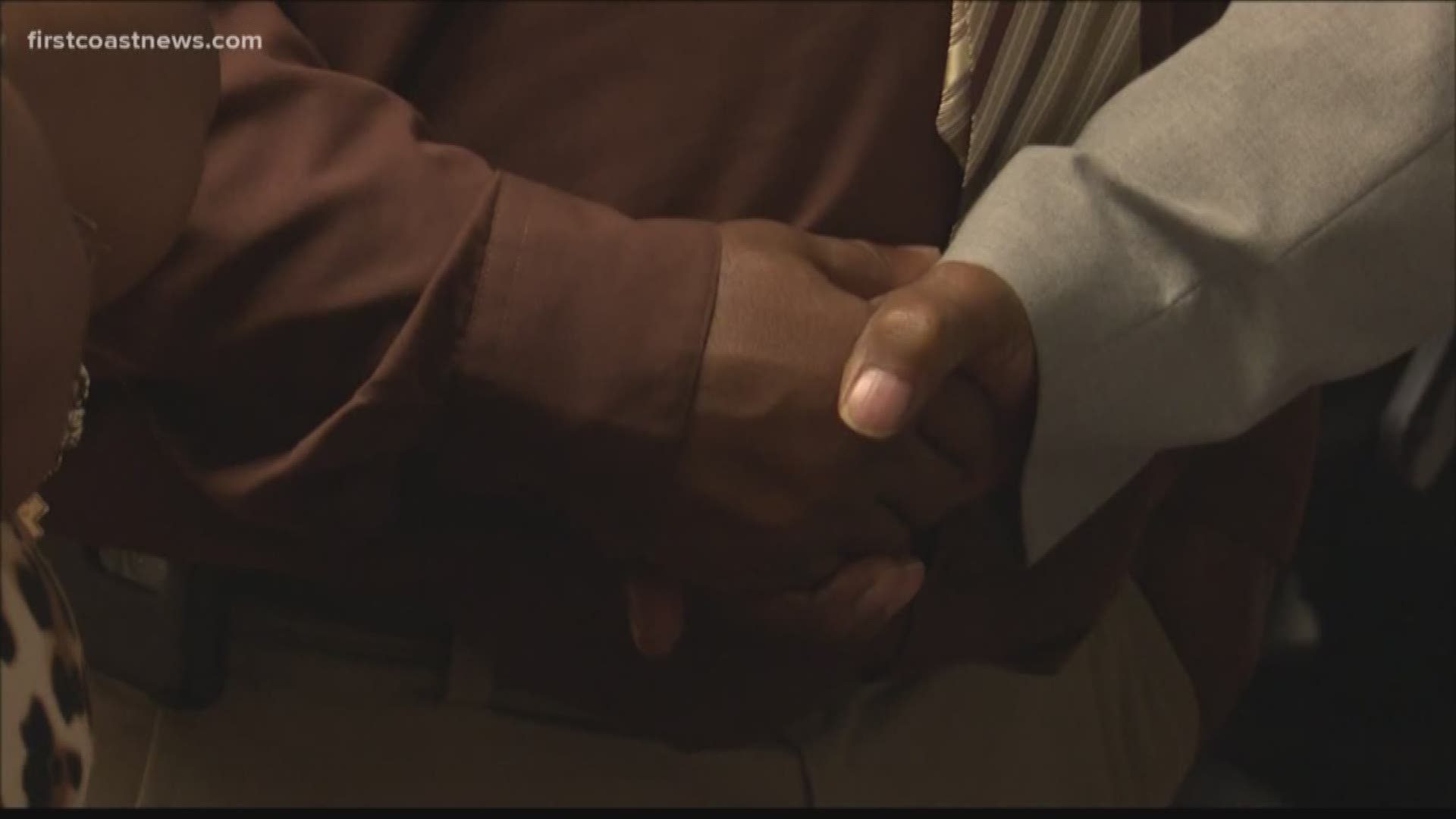JACKSONVILLE, Fla. — Florida Gov. Ron DeSantis signed a bill to pay $2 million to a man who was released after 43 years in prison for a murder authorities now say he did not commit.
Both chambers of the legislature passed the bill unanimously in March to compensate Clifford Williams. Williams, 76, was released from prison in 2019 in a case that is now called an injustice.
The Case
Williams and his nephew, Nathan Myers, were convicted of the 1976 murder of Jeanette Williams and the attempted murder of Nina Marshall in Jacksonville. According to the National Registry of Exonerations at the University of Michigan, the two were arrested after Marshall told police they were the shooters. Despite evidence that contradicted the police reports, a jury convicted Clifford Williams and Nathan Myers on all counts.
Myers was sentenced to life in prison. Williams was at first sentenced to death and spent four years on death row before being resentenced to life. Their appeals were denied until Jacksonville's Conviction Integrity Unit reopened the case in 2017. They found inconsistencies in the evidence that led them to believe Williams and Myers could not have been the shooters. A judge vacated the convictions on March 28, 2019, and the two men walked free after serving 43 years for a crime they did not commit.
Myers received $2 million in compensation from the state of Florida earlier this year. Williams was ineligible for automatic compensation because of a prior felony conviction, but legislators passed the bill to grant him the money.
How do wrongful convictions happen?
According to the Innocence Project, which works to exonerate the wrongfully convicted, people can be mistakenly sent to prison for a number of reasons. The case of Williams and Myers featured the two most common problems, eyewitness identification and improper forensics.
Nina Marshall, who was injured in the 1976 shooting, later told investigators she may have identified the wrong men because she was under the influence of drugs at the time. The Innocence Project says more than 70-percent of all wrongful convictions involve a witness or a victim misidentifying the suspect. In that same case, police originally reported that the shots came from two guns inside the home. But further analysis revealed that the shots came from outside, and were from the same gun. Improper forensics are said to be a factor in nearly half of all wrongful convictions.
The Innocence Project says other problems that can lead to suspects being wrongfully convicted include false confessions (27%) and informants or snitches giving false information (15%).
How common are wrongful convictions?
There are no official statistics regarding wrongful convictions, but data suggests they may be more common than you think. The Death Penalty Information Center says since 1973, 168 people have spent time on death row before being exonerated. Clifford Williams was the 29th death row exoneree in Florida, which is the most in the nation.
What other people are reading right now:
- Reports: 'Cops' canceled by Paramount; 'Live PD' taken off schedule
- 'He is going to change the world' | Funeral held for George Floyd
- City of Weeki Wachee dissolved by Florida governor
- Hillsborough County parents mostly in agreement to send kids back to school
- Human remains found at home of Chad Daybell as authorities search for two missing kids from Idaho
- Florida police organization posts a job offer for fired, disciplined officers
- Florida sees five straight days of 1,000+ new coronavirus cases
FREE 10 TAMPA BAY APP:
►Stay In the Know! Sign up now for the Brightside Blend Newsletter



